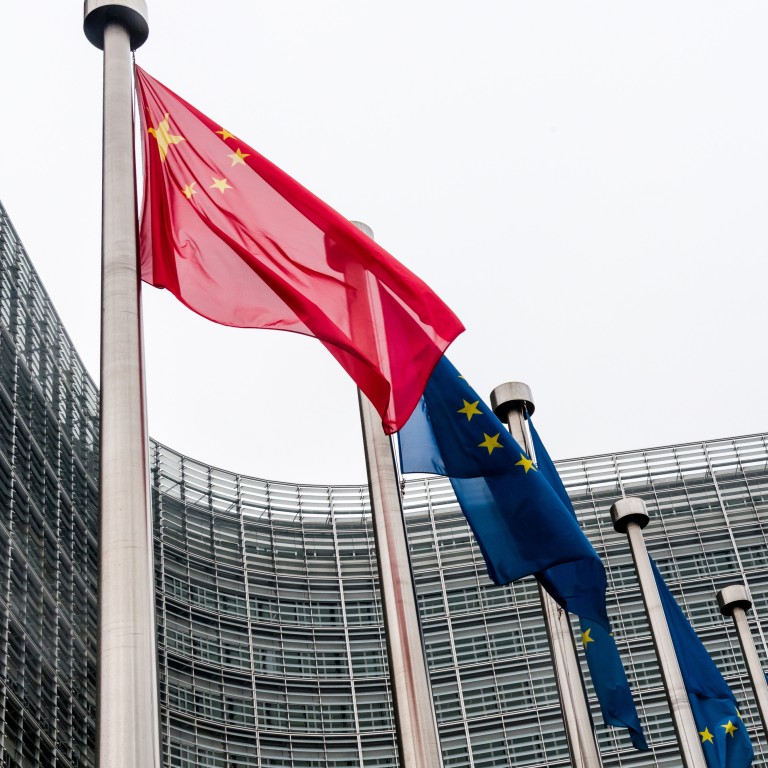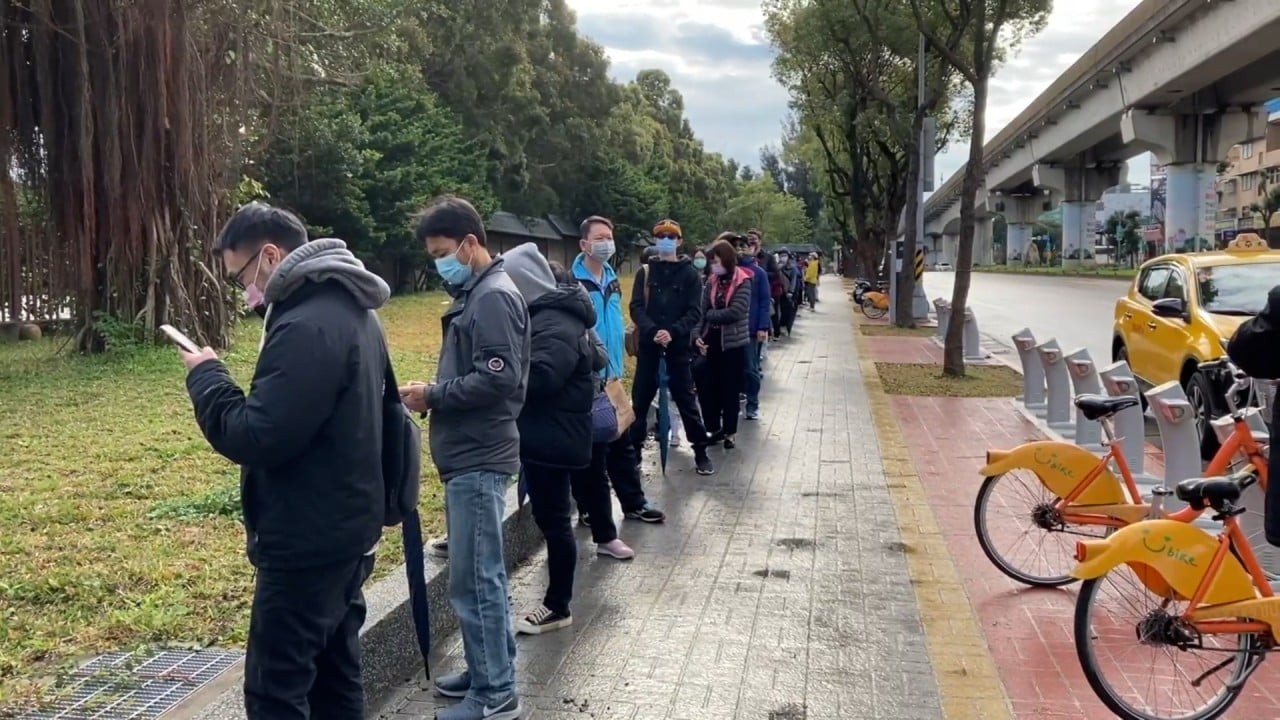
China stalls on EU trade talks date as push for Lithuania WTO case gains ground, bloc officials say
- European officials say they have proposed a number of slots but have not heard back from Beijing
- There is also no sign of a new Chinese ambassador to the EU since Zhang Ming left in December
Both parties agreed to maintain the talks, held every two years, during the summit between Chinese President Xi Jinping, Premier Li Keqiang and EU institution leaders Ursula von der Leyen and Charles Michel.
“Leaders mandated the High-level Trade and Economic Dialogue to find concrete ways to progress on these issues before the summer,” the EU said in a statement after the summit.
But almost three months later, Brussels has been unable to nail down a date, with Beijing failing to respond to their requests, according to five senior sources familiar with the exchanges.
Proposed dates for the dialogue in June have “now slipped”, and the EU has suggested others for July, the latest of which is July 18, but China has still not responded.
Complaints spur withdrawal of Brussels tram ads for Hong Kong handover
Talks at the summit hit rocky ground after EU leaders failed to gain any assurances from China that it would not support Russia’s invasion of Ukraine, financially or militarily.
Supporting Russia could breach EU sanctions – and European officials say there are no major signs that Chinese companies are engaging in such behaviour.
It has been more than six months since China had an ambassador to the European Union, with no news of a replacement for Zhang Ming, who left in December to become head of the Shanghai Cooperation Organisation.
The Chinese Mission to the EU did not respond to a request for information on when a new ambassador would be appointed, but EU officials said Beijing could be sending a message about how it views the bloc.
“Basically, they don’t care,” one official said.
In Beijing, EU diplomats have also found it more difficult to speak to their Chinese counterparts, who say they prefer to engage directly with member states, according to EU sources.
Meanwhile, senior sources said the EU was “leaning towards” taking the next step in a World Trade Organization (WTO) dispute over China’s alleged coercion of Lithuania.
There has been vigorous debate in the bloc’s trade department over whether to progress to a dispute panel, although a final decision is not expected before Brussels shuts for the summer break.
After the office opened in Vilnius, Lithuanian exporters found their goods frozen out of the Chinese market, with Chinese customs data showing near evisceration of the trade in the following months.
The department’s powerful, conservative legal team is reluctant to bring any case that it is unsure it can win, and is deterred because the unofficial boycott does not fit neatly within existing WTO rules.
But senior officials argue that such a case is inherently geopolitical, and that it should not be considered on technical grounds alone. Several senior sources said that if Brussels did not plough on with the case after it generated such media attention, it would “look weak”.
These officials say that after weeks of back and forth, their arguments are winning, but they still need final approval from EU member states to go to the next stage.
The case is also complicated by reluctance among businesses to give evidence on the record, a requirement for evidence presented to the WTO tribunal in Geneva, according to EU trade sources.
Another wrinkle is that the unofficial embargo is porous: more Lithuanian goods have been getting through Chinese customs at times this year, even if the overall value of shipments is a fraction of the levels a year earlier.
Lithuania plans to open Taiwan office in September amid Beijing’s anger
Since then, certain products like high-end lasers have had gained entry, while others have been rerouted via third countries on their way to China.
Some containers have also been released after discussions with Chinese officials in Geneva, with Beijing envoys saying clerical errors were to blame.
This, said an official, was “muddying the waters” and making a complex situation “even more ambiguous”.
Vidmantas Janulevičius, head of the Lithuanian Confederation of Industrialists, said there was “some softness” from China.
“They try to slightly reduce some trading barriers. Unfortunately it’s still not easy to export all the things we exported before to China. That means grains, food, beverages are still not permitted,” he said.
“Some technical equipment is reaching China, and exports from China are starting to slightly come back again. But most of it is going through other European countries.”


